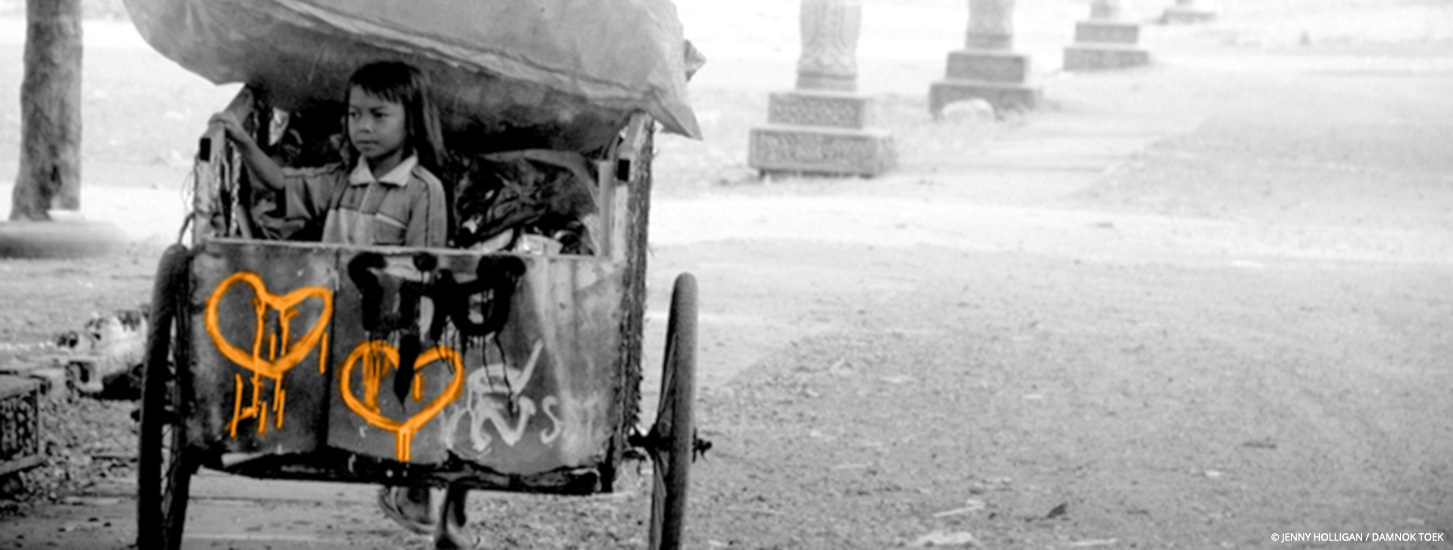On the Border: Migrant and street-connected children in Poipet
Partnered with Damnok Toek
This grassroots study explored the experiences of 80 street-involved children living and working along the Thai-Cambodian border in Poipet. It found high rates of drug use, especially among boys, associated with increased violence. Crossing into Thailand for economic opportunities also correlated with more violence. Over a quarter experienced sexual violence, primarily boys, though this was not recognized as a risk. Many children were left alone or with siblings as parents worked in Thailand, increasing vulnerability. The partner organization will use these grassroots findings to inform programs and activities supporting these children.

Research Overview
Over the past several years, Poipet has become an area of Cambodia where street-living and working populations have uniquely proliferated. The promise of jobs and other economic opportunities within this area, and just over the border in Thailand have made Poipet an attractive destination for children and families from economically depressed areas throughout Cambodia. Despite this reality, there is a lack of basic information on the needs and vulnerabilities of these groups to such forms of migration and violence. This study partnered with social workers from the local NGO Damnok Toek to explore the lives and experiences of 80 street-involved girls and boyg living and/or working along the Thai-Cambodian border area Poipet and Aranyaprathet and offers an initial analysis of their key needs, vulnerabilities, and potential resiliencies.
Main findings
Drug use was found to be a significant issue among street-involved boys in Poipet with 40% of males indicating use of glue-type inhalants and 29% of males indicating use of crystal methamphetamines. Additionally, drug use was also associated with higher experiences of physical violence.
A strong majority of respondents (71%) cross the border into Thailand in search of various economic opportunities. This group was 2.1 times more likely to report physical violence and 4.1 times more likely to report being hurt or threatened by a weapon in comparison with those who solely work on the Cambodian side of the border.
Sexual violence on the streets was cited by more than one-fourth of respondents and was nearly four times more prevalent among males in comparison to females. Despite this, neither males nor females seemed to perceive sexual violence as a danger for males.
The majority of children have parents who migrate to Thailand for work 24% of whom are left alone and 18% of whom are left with a sibling while their parents are out of the country greatly increasing their vulnerability to violence.
We will be working with our partner over the following months to support them on how the findings and recommendations of this research can be taken in account in their programmes and activities.
Read the full study
“On the border” (English version)
“On the border” (Khmer version)
Partner
Damnok Toek (“Drop of water” in English and “Goutte d’eau” in French) is a Cambodian organisation working with vulnerable children and their families. Its main goals are:
Prevention of child abuse, substance abuse and child trafficking/unsafe migration (internal and cross-border trafficking)
Rehabilitation of under-aged substance abusers and traumatized children
Integration of neglected children and street children into Cambodian society through formal education (public school) and informal education (non formal education programmes and vocational training)
Reintegration of trafficked or runaway children into their culture, their villages, and if possible their families of origin
